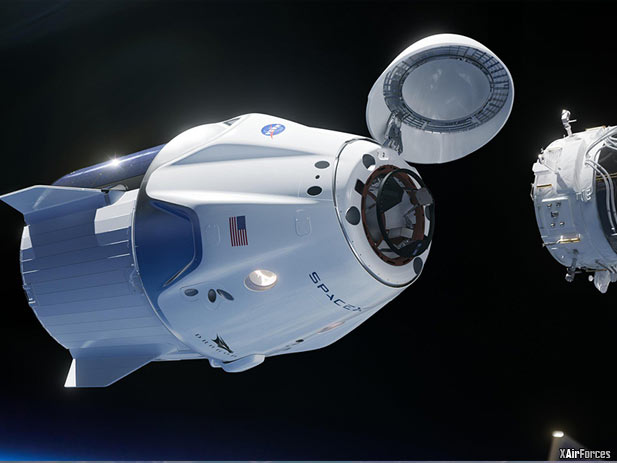
Russia Wants Answers From NASA About Alcohol Smell on ISS After Dragon Docking

Last month, outside observers marked concerns with SpaceX's Dragon 2 programme after one of the crew capsules unexpectedly exploded during a static fire test.
Russia has sent NASA observations and questions regarding the release of isopropyl alcohol into the International Space Station (ISS) after a Dragon 2 spacecraft docked there in March, Pavel Vlasov, chief of the Cosmonaut Training Centre outside Moscow, has told Sputnik.
"Yes, as far as I understand, this spacecraft caused the emission of isopropyl alcohol into the atmosphere aboard the ISS. Observations have been made and questions asked," Vlasov said, adding that the Russia directed the questions to NASA, rather than to SpaceX itself.
On 3 March, an unusually high concentration of isopropyl alcohol was registered in the air circulating within the ISS after the arrival of an unmanned Dragon 2 capsule. The colourless liquid, commonly used in cosmetics, household chemicals and medicine, can cause headaches and eye and respiratory irritation through long-term contact, and damage to equipment.
A Russian rocket and space industry source told Sputnik that the higher than normal concentration of the chemical was the result of the Dragon 2 capsule, with normal levels recorded before the craft docked. The smell began to dissipate after the test capsule undocked from the station and returned to Earth, with the crew turning on air purification systems to deal with the chemical buildup.
Speaking to Russian media, veteran cosmonaut Pavel Vinogradov said there were several possible sources which may have caused the smell, including chemicals which may have been used to disinfect the ship back on Earth, or the materials used in its construction.
One problem, according to Vinogradov, was that isopropyl alcohol itself is "quite ambiguous" as a chemical. "It may seem that there is isopropyl alcohol, when in reality these are other compounds," he said.
SpaceX has faced a litany of problems with the development of its Dragon 2 spacecraft in recent months, with reports emerging earlier this week that the company experienced problems with parachute testing last month after testing failed to adequately respond to a contingency where one of the four parachutes had failed, resulting in damage once the craft hit the ground.
Earlier, a Dragon 2 crew capsule was completely destroyed after unexpectedly bursting into flames during a routine ground test. The company only confirmed the loss of the capsule last week, saying it was "not great news" given its plans to launch astronauts into space aboard the craft later this year.
Prior to confirming the loss of the capsule last week, the private space company described the test failure merely as an "anomaly," with NASA employees reportedly told that they could be fired for sharing photos and videos of the explosion after footage of the event was circulated online.
The Dragon 2, also known as the Dragon Crew, is a reusable spacecraft designed as a manned successor to the Dragon space freighter, which successfully delivered cargo to the ISS earlier this week following multiple delays.
The capsule was expected to carry out its first manned test flight in July. NASA contracted SpaceX and Boeing (with its Starliner crew capsule design) to ferry astronauts to and fro the ISS, but for now, relies on Russian rockets to fly to the station.
Source: Sputniknews | 16 May 2019
Photo: NASA International Space Station (ISS) with Dragon 2 spacecraft (Photo by CC0) Osman Tufekci (Istanbul/TURKEY XairForces Editor)
WORLD AIR WAR HISTORY BY XAIRFORCES.NET
osmantufekci@gmail.com
Facebook.com/OsmanTufekci2053
Twitter.com/Osman_Tufekci
(16.05.2019)
|